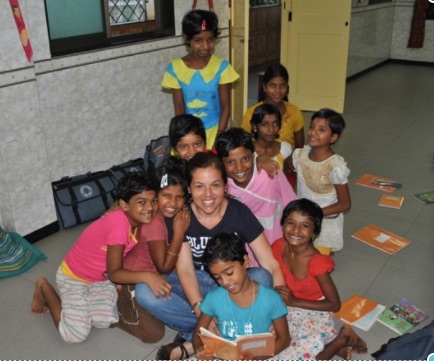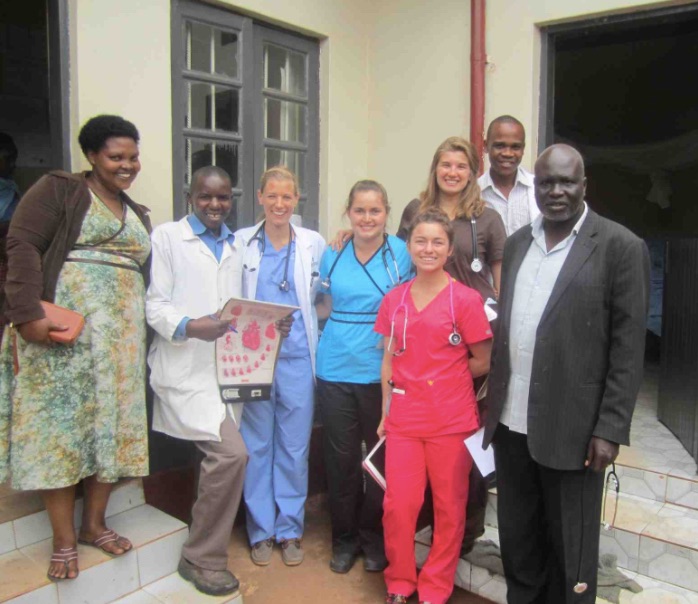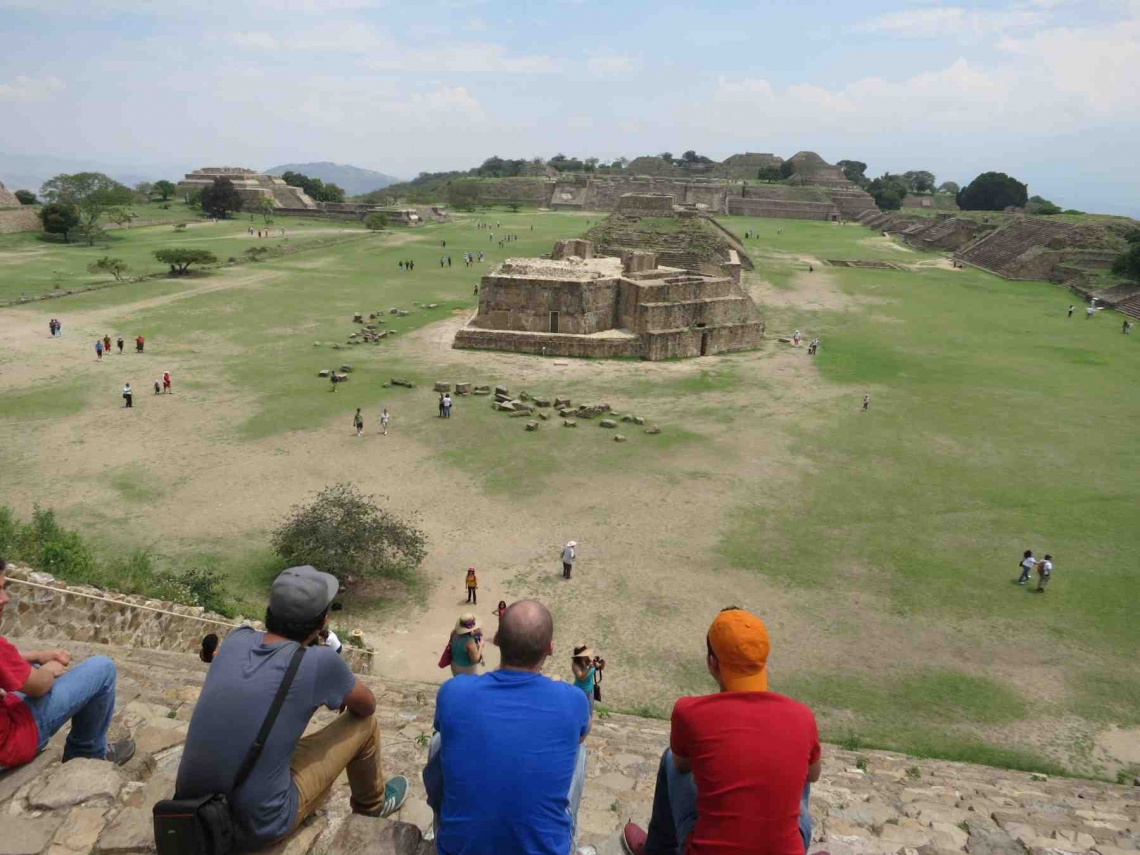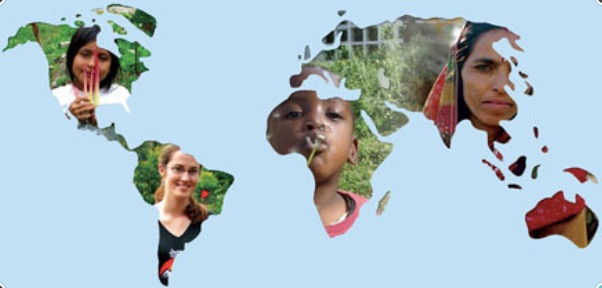Main Content
Deadline extended to March 16, 2018

Learn about global health issues in one of Child Family Health International's (CFHI) Global Health Experiential Learning Programs in early fall. CFHI focuses on reciprocal partnerships and empowerment in local communities and helps transform perspectives about self, healing and global citizenship. Engage with physicians and medical professionals in India, learn about food security in Uganda, health inequities in Mexico, and healthcare delivery in rural Bolivia. Visit the CFHI website for more information.
Please note that you will only be able to earn UW credit if you enroll in the accompanying 1 credit TBIOMD 490 class in spring 2018.
|
Schedule |
|
|---|---|
|
Spring 2018 |
TBIOMD 490 class (1 credit). |
|
Early Fall 2018 |
TBIOMD 491- Participation in the CFHI: Global Health Experiential Learning Program (2-4 credits). |
Eligibility
Undergraduate and graduate students from any UW campus may apply. UW students are eligible to receive academic credit for participation in the program only if they enroll in the accompanying TBIOMD 490 class in the spring, taught by UW Tacoma professor Karen Cowgill, Ph.D.
Choose from one of the following CFHI program options:

Hospital Medicine and Infectious Disease in Mumbai, India
Dates: 2, 3, or 4 week options between September 1-28, 2018. Note: Dates do not include travel time to and from destination.
Witness first-hand through urban and rural hospital settings, outpatient clinics, and by visiting nonprofit organizations, the gargantuan efforts being made by India’s largest metropolis in diminishing the incidence of communicable diseases. In Mumbai, inadequate sanitation and congested living conditions are some of the factors that contribute to the spread of many preventable communicable diseases like pneumonia, tuberculosis, meningitis and measles. Many of these diseases can be effectively controlled with cost-effective interventions, such as public health campaigns to educate the population on preventative measures and prompt clinical care for those already infected to prevent the spread.
Study abroad in Mumbai and you will:
- Join a family physician in their general practice clinic and witness how service and wait times differ between the local public hospitals and private clinics that cater to patients from a higher socioeconomic background.
- Learn about the national TB control program and how TB is treated clinically.
- Observe care and support facilities for patients with complications from Leprosy.
Program Cost: 2 week: $1,925; 3 week: $2,400; 4 week $2,675

Nutrition, Food Security, and Sustainable Agriculture in Kabale, Uganda
Dates: 2, 3, or 4 week options between September 1-28, 2018. Note: Dates do not include travel time to and from destination.
Become a part of the community in Kabale, a town in southwestern Uganda, and learn about their ground-breaking integrated approach to addressing “The Bread Basket Paradox” and improving food security and nutrition. Assist a local nonprofit organization in their efforts to treat and prevent maternal and child malnutrition through education and counseling. Visit local primary and secondary schools and participate in Nutrition Education Outreach using participatory drama and theater. Learn about sustainable agriculture and permaculture with a local social enterprise organization. Participate in workshops with village community groups and explore methods of growing a diversity of foods closer to people’s homes.
Study abroad in Kabale and you will:
- Engage with teams at a Nutrition and Rehabilitation Center who provide impatient re-feeding and rehabilitation for severely malnourished children.
- Learn about sustainable agriculture by visiting farms in the Kigezi region to exchange ideas and help local farmers implement practical solutions.
- Rotate alongside family planning specialists and HIV positive peer educators, who provide medical treatment and social/emotional counseling for HIV positive patients.
Program Cost: 2 week: $1,925; 3 week: $2,400; 4 week $2,685

Health Access and Inequities in Oaxaca, Mexico
Dates: 2 week intensive program from December 15-29, 2018. Note: Dates do not include travel time to and from destination.
Join CFHI’s Global Health Intensive in Oaxaca to learn about primary care and preventative medicine, as well as community health education programs in this region. Rotate at community clinics and hospitals serving low-income populations. See Mexico’s three-tiered insurance system, and understand how quality of care, wait times and access to medications varies between each. Witness chronic conditions like diabetes and hypertension that are increasingly common as a result of poor nutrition, unhealthy lifestyle and lack of education. This program will provide participants with unique insight and cultural competency when serving the growing Mexican immigrant population in the US and abroad.
Study abroad in Oaxaca and you will:
- Join physicians and nurses at Primary Healthcare centers as they educate the local population about chronic conditions like hypertension and diabetes, and infectious diseases including dengue, malaria and tuberculosis.
- Get a crash course in Mexican culture and language by spending 2 weeks taking Spanish classes and living with a local Oaxacan family.
- Rotate alongside Mexican medical students and residents in ob/gyn, pediatrics, surgery, and emergency wards. Participate in morning rounds, general consults, and follow-up treatment.
**Because Mexico is currently under a U.S. Travel Warning, program participants will need to apply for a Travel Warning Waiver. Please contact uwtintl@uw.edu ASAP to learn about the process.**
Program Cost: $1,925

Doing More With Less: Healthcare in Remote Southern Bolivia (Tarija, Bolivia)
Dates: 2 or 3 week options between September 1-22, 2018. Note: Dates do not include travel time to and from destination.
Join health professionals and become immersed in Tarija’s healthcare system, including community clinics, secondary and tertiary level hospitals, and a leading clinic for the treatment of Chagas Disease. This picturesque region is known as the “Bolivian Andalucia” for its vineyards and Spanish cultural influence. Tarija offers universal health insurance, which can create high demand for services and strains on the system due to lack of personnel and equipment. Understand cultural and socioeconomic barriers patients face in accessing healthcare services and take part in patient consultations, laboratory analysis, and prevention efforts in surrounding communities.
Study abroad in Tarija and you will:
- Rotate with local physicians through specialties including pediatrics, surgery, cardiology and internal medicine in a regional teaching hospital.
- Become immersed in Bolivian culture and language through conversational and medical Spanish classes while living with a local family in Tarija.
- Witness treatments for pathologies not commonly seen in North America, including parasitosis, tuberculosis, and Chagas.
Program Cost: 2 week: $1,925; 3 week: $2,250; 4 week: $2,370
Academic Content:
Context for Global Health Experiential Learning: TBIOMD 490 (1 credit)
Global Health Experiential Learning Program: TBIOMD 491 (2-4 credits)
Participants will be required to take TBIOMD 490, an on-campus pre-departure course that will provide background in the field of global health and prepare students to gain maximum benefit from their CFHI global health experiential learning program (GHELP). The 1-credit TBIOMD 490 course will meet in person once a week for one quarter during the academic year before students engage in a two-week (or longer) GHELP in September, fulfilling the TBIOMD 491 sequence. Together, the TBIOMD 490-491 sequence (3-5 credits) may fulfill a student’s Biomedical Sciences or Environmental Sustainability capstone requirement as an internship.
Steps students take to receive UW academic credit:
- Apply to the CFHI program of your choice through CFHI website before February 15: CFHI Application. UW Tacoma students can waive the CFHI application fee. Please contact uwtintl@uw.edu to access the waive fee code.
- Apply to the CFHI program through the UW Tacoma study abroad website by clicking on the "Apply Now" button on the top of this page.
- Once CFHI has accepted you to the program, please email your proof of acceptance to the Office of Global Affairs at UW Tacoma [uwtintl@uw.edu] and to Dr. Karen Cowgill [kdc8@uw.edu].
Payment Schedule
|
Amount |
Due |
|
|---|---|---|
|
Administrative fee |
$250 |
October 12, 2018 |
|
Tuition for TBIOMD 490 class (spring quarter) |
|
|
|
Program fee |
variable |
October 12, 2018 |
Method of payment: The administrative fee and program fee will added to your MyUW student account on October 12, 2018.
Payments made in person or by mail will need to be paid by personal check, cashier's check, or money order made payable to University of Washington Tacoma (UWT). Please write "CFHI 2018" in the memo line of the check. Please submit the check to the University of Washington Tacoma Cashier's Office (CAR 400) during regular business hours. Please do not submit your check to the Office of Global Affairs. You can also mail it to:
UW Tacoma Cashier's Office
Campus Box 358433
1900 Commerce Street
Tacoma, WA 98402

Orientation
To be eligible to study abroad, all program participants must attend an in-person pre-departure orientation facilitated by the Office of Global Affairs/UW Study Abroad as well as your CFHI program-specific orientation.
Financial Aid and Scholarships
Students receiving financial aid which they intend to apply toward the program cost should consult with a financial aid adviser before applying to the program. Check with a financial aid advisor to understand how your funds apply toward study abroad. Please bring the CFHI student financial aid budget form with you to your meeting.
Some sources of funding, i.e. the GI Bill®, may not cover the cost of study abroad programs. If you receive GI Bill benefits, please email uwtintl@uw.edu to find out if your benefits can cover some of your study abroad costs.
Please also review this list of scholarships: these are opportunities that can help fund your study abroad experience. Please note that many of them have deadlines before your study abroad application is due. For help with the application process, please contact uwtintl@uw.edu.
Changes in Costs or Scope of the Program
In the event of significant devaluations of the dollar, some adjustments to program activities may be necessary. If there are any political events that might compromise the safety of the participants, a rescheduling or cancellation of the program may be necessary. If such changes occur, students will be notified of the changes and options will be presented.
Program Cancellation
If viable enrollment is not reached by June 15, 2018, individual programs may be cancelled. Participants will be given the opportunity to switch to one of the other programs.
Equal Opportunity and Disability Accommodations
The University of Washington reaffirms its policy of equal opportunity regardless of race, color, creed, religion, national origin, sex, sexual orientation, age, marital status, disability, or status as a disabled veteran or Vietnam era veteran in accordance with University policy and applicable federal and state statutes and regulations. The University of Washington is committed to providing access and reasonable accommodation in its services, programs, activities, education and employment for individuals with disabilities. To request disability accommodation in the application process contact Disability Support Services at least ten days in advance of the study abroad program application deadline.
GI Bill® is a registered trademark of the U.S. Department of Veterans Affairs (VA). More information about education benefits offered by VA is available at the official U.S. government website at https://www.benefits.va.gov/gibill.
